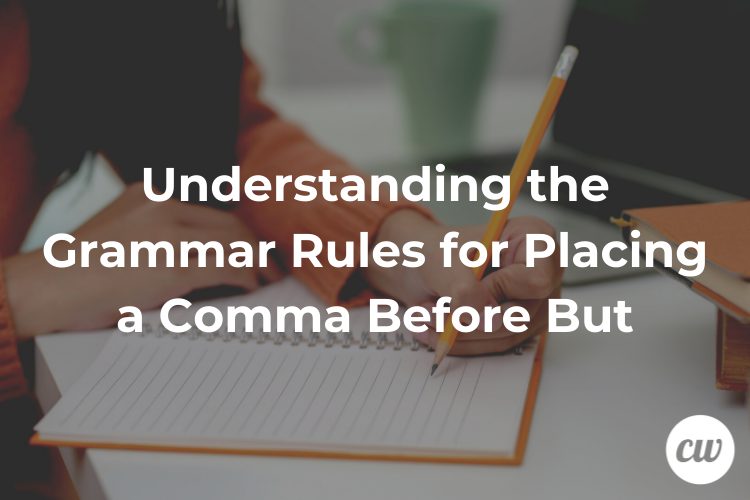
Understanding the Grammar Rules for Placing a Comma Before But
It can be difficult to know when you should put a comma before the word “but” in a sentence. After all, “but” is a conjunction that can join together different parts of a sentence. Sometimes, it is okay to use “but” without a comma. Here are some guidelines on whether you need to use a comma before the word “but” and some examples of best practices.
The Rules
In general, you should put a comma before the word “but” when the word connects two independent clauses. An independent clause can function on its own without the rest of the phrase. A dependent clause needs the other clause to work as a sentence.
For instance, the sentence: “I would accept the assignment, but I have too many assignments to write already.”
In this case, both clauses can function independently. “I would accept the assignment” works as a sentence on its own. “I have too many assignments to write already” also works as an independent sentence. Because of this, there should be a comma before the word “but.”
If one of the clauses is a dependent clause, then you should not use a comma before the word “but.”
For instance, “I would accept the assignment but for my existing workload.”
In this sentence, “for my existing workload” does not have a verb. It is not a complete sentence and cannot stand on its own. It is a dependent clause. For this reason, you do not need a comma before the word “but” because both phrases are not independent clauses.

Examples of Correct Comma Usage
Generally, you need to use a comma before the word “but” when it connects two independent clauses. Some examples of this are:
- Content marketing takes time, but it is worth the effort.
- Writing a book is only the first part of the process, but you could spend just as much time editing it.
- An interview with a subject manner can provide a lot of information for upcoming articles, but taking accurate notes is equally important.
Examples of Correct But Without Comma Usage
Some examples of sentences that would not need to have a comma before the word “but” are:
- He is young but ambitious.
- She wrote a song and submitted it to a contest but lost anyway.
- She loves to read novels but hates nonfiction books.
Best Practices
When writing complex sentences, it is important to look at whether the clauses are independent or dependent clauses. If the clauses are independent and could function as separate sentences, you do need a comma. However, if the clause is dependent and relies on the independent clause before it, you do not need the comma.
If you are not sure what to do, you could rely on an online grammar checker such as Grammarly or Hemingway. Both programs should be able to provide feedback about proper comma usage. With Grammarly, you may need to use Grammarly Premium, the paid version, to get access to advanced grammar review. The free version provides some basic guidance on clauses and comma usage.
Comma After But
There are actually some rare instances where it might be appropriate to use a comma after the word “but.” This is when the word “but” is used as an interrupter. The sentence or clause will still retain its meaning without the word. For example, an interrupter might read something like: “but, of course, sometimes interviews need to be rescheduled.” The sentence “sometimes interviews needs to be rescheduled” is a full sentence on its own. The only reason that there is a comma after the word “but” is because of the interrupter that comes after it.
Proper grammar usage is an important part of writing, whether you are creating long-form content or short social media posts. It is a way to maintain the clearest level of communication and ensure that your comma usage is consistent across the written content that you produce. In most cases, you should use a comma with an independent clause. It can be that simple.
Melanie G. is a freelance writer and editor living in Tampa, Florida. She’s freelanced full-time since she left her writing job at Nielsen in 2012.




